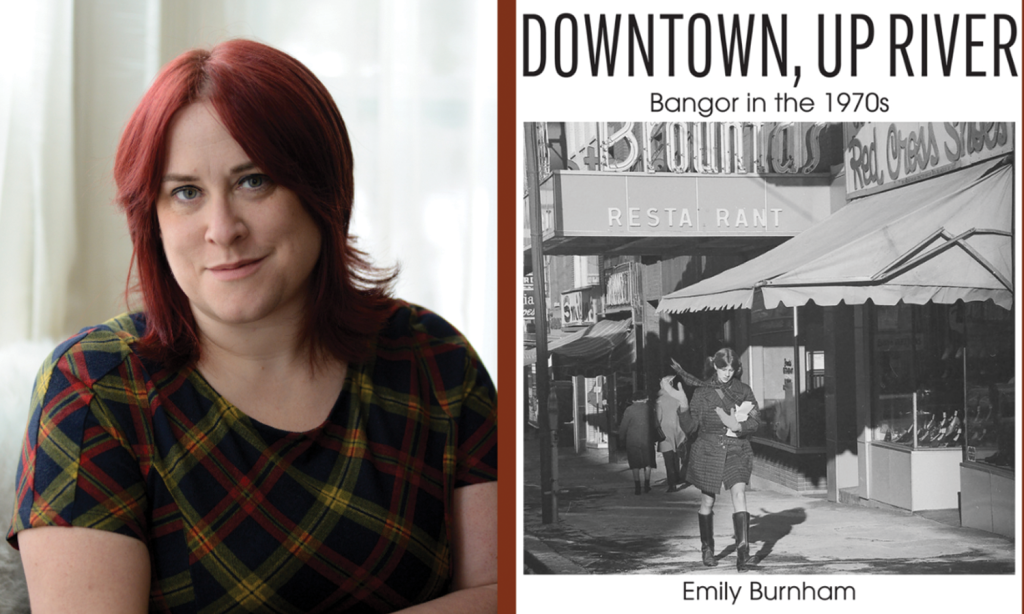Journalist and author Emily Stoddard Burnham publishes new book titled ‘Downtown, Up River: Bangor in the 1970s’
A CLAS alumna has recently published a new book offering a visual history of a very specific period in the history of the Queen City.
Emily Stoddard Burnham, longtime reporter for the Bangor Daily News and graduate of the University of Maine’s English Department (Class of 2005), has written a book titled “Downtown, Up River: Bangor in the 1970s.” The book – published by Islandport Press and initially released in November – tells the tale of the city during that particularly tumultuous time, both through Burnham’s prose and via scores of photographs of the era pulled from the BDN archives and elsewhere.
Bangor in the 1970s was shifting, changing from the city it once was to the city it hoped to become. The twin blows of urban renewal and the Bangor Mall led to a seismic shift in the city’s once-bustling downtown and left residents with the real challenge of balancing tradition and progress … a challenge not easily met.
Burnham shared some thoughts on the book, such as her reasons for and the process of writing it.
“I’ve been writing about Bangor and Maine history for the BDN for a number of years already, so I have had a book in mind along those lines for quite some time — about what specifically, I hadn’t quite landed on,” said Burnham. “As it happened, Islandport Press had a great deal of success with its 2021 book, ‘Take It Easy: Portland in the 1970s,’ and approached me in January 2022 about doing something similar for Bangor.”
Coming up with the central conceit for a book is no easy task … and that’s just the first hurdle to clear.
“After a few months of research, I came up with a concept that, while similar in appearance to the Portland book, would delve more deeply into the historical and cultural context of the era,” she said.
With the concept locked in, Burnham’s next step was to start accumulating material. This meant taking some deep dives into a wide array of photographic archives, both at her place of employment and beyond. That process began in April of 2022, with the initial manuscript reaching completion in October of that year. After spending much of 2023 engaged in editorial back-and-forth, the final draft was completed in September.
Burnham also spoke to some of the ways in which her experiences at UMaine contributed to her journalism career and, in turn, the creation of this book.
“I think having an early start in storytelling — whether writing fiction as part of my English degree, creating zines with the Student Women’s Association and WMEB, and the handful of history classes I took — all played a big part in the things I’ve focused on in my journalism career,” she said.
“I was lucky to be supported by a number of professors who recognized my, shall we say, unique set of skills and encouraged me at that young age!”
Burnham was also generous enough to offer some advice to those burgeoning nonfiction writers looking to tackle this sort of longform project.
“It’s freeing, in a way, to write in your own voice and not be bound by daily or weekly deadlines, and if you’re coming from an industry where the demand for content is constant, it’s a breath of fresh air to take your time and focus deeply on one thing,” she said. “I’d say it’s important to remember that you personally need to be passionate about your topic, whatever it might be. It’s your book and your voice, and you need to choose something that you know you love and care about. I definitely care about Bangor!”

